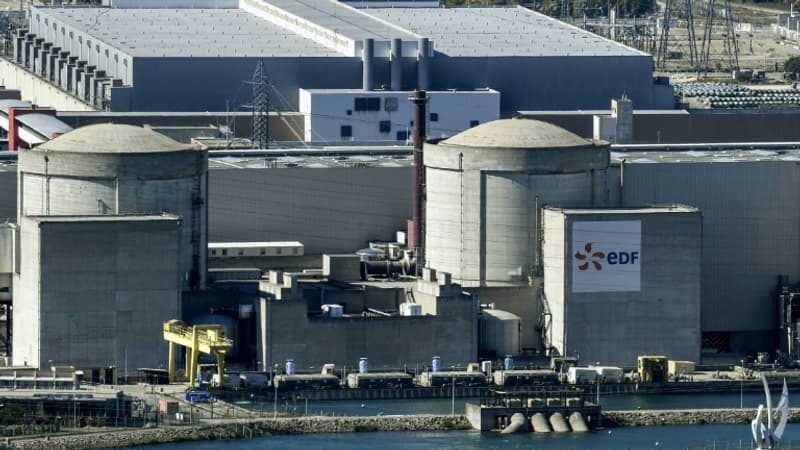The French State and EDF are close to reaching an agreement on future electricity prices through a new tax system on company income that would limit consumers’ bills, according to a source close to the executive.
The government and the group have been working for months on new regulations to protect consumers against excessive price increases and allow companies to benefit from the competitive costs of nuclear energy, while giving EDF the means to invest.
“Not far off the mark”
Although Emmanuel Macron had promised announcements in October to “regain control of the price of our electricity”, the issue generated tensions between EDF and the executive over the level of future prices.
According to a source close to the executive interviewed by Reuters, the two parties finally agreed on the principle of staggered taxation of the group’s nuclear income, when sales prices in the markets exceed its costs, and then redistribute the amounts collected among consumers.
“We are not far from the objective,” said this source, adding that, if the State and EDF are in the process of convergence, discussions continue on the conditions of a review clause.
EDF wants to immediately guarantee revenues high enough to deal with possible price drops in the coming years, while the Government now wants a more favorable electricity price for consumers and advocates subsequent adjustments accordingly.
The different levels and rates of collection of EDF’s revenue from the sale of its nuclear electricity in the markets are still under discussion, the source added. EDF did not want to comment on this information.
“Intense debates”
Its general director, Luc Rémont, during a Senate hearing, once again defended long-term contracts as the basis of the group’s future economic model, although he recognized that they must be completed with “instruments that allow public authorities to maintain control (of the ) market, especially in stressful situations.
Referring to a mechanism to “recover from producers, and in particular from EDF, a financing and redistribution capacity that would be implemented based on a certain number of thresholds”, the executive director specified that these thresholds were the subject of conversations with the State. “Our discussions are (…) intense with the government and administrations to find the best possible path,” he said.
While the Energy Regulatory Commission recently assessed the total production cost of the French nuclear park at 60.7 euros per megawatt-hour (MWh) for the period 2026-2030 – which could constitute a reference to determine the future fiscal threshold of EDF -, the general director of for his part mentioned a figure “closer to 70 (euros)”.
“We are having discussions in these areas that will allow us to have, I hope, a framework that is sustainable for everyone, that is sustainable for the country and that is sustainable for EDF.”
The new regulation currently under discussion should take over from Arenh (regulated access to historical nuclear electricity) in 2026, after the end of this system, forcing EDF to cede part of its nuclear production to its competitors: 42 euros/ MWh and the group have long highlighted the negative impact on their accounts.
Source: BFM TV


